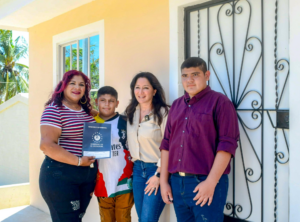
El Salvador has significantly transformed its customs and tax processes thanks to a project financed by the Inter-American Development Bank (IDB), which began in 2018 with a US$30 million loan. This project allowed for the digitalization of procedures, improving efficiency, reducing costs, and strengthening tax collection.
Before implementation, customs procedures were carried out entirely on paper, causing delays of up to five days. Now, with a modernized system, inspection times have been drastically reduced to 30 minutes, thanks to technologies such as scanners, RFID, drones, and digital surveillance. In addition, merchandise traceability is more precise through the installation of GPS in cargo trucks.

The Port of Acajutla and the San Bartolo customs office have been key in this modernization, with the adoption of remote inspections and a new strategic customs system. This advance also includes the “Blue Channel,” which allows for verifications at the facilities of low-risk companies, improving convenience for taxpayers.
In the tax area, the implementation of the electronic invoice has optimized the collection of VAT, which went from representing 3.5% of GDP in 2017 to 8.7% in 2023. The digitalization of tax documents has facilitated compliance with tax obligations for companies of all sizes, while authorities have advanced tools to combat evasion.
The modernization has also had a positive environmental impact. Until September 2024, the reduction in the use of paper prevented the felling of more than 29,000 trees and the consumption of 208 million liters of water, promoting sustainability.

Updating digital infrastructure and economic classification of taxpayers have strengthened the government’s fiscal control, narrowing the tax gap. This consolidates a more equitable system and generates confidence in taxpayers.
These advances have positioned El Salvador as an example in the region of how technology can boost administrative efficiency, sustainability and economic growth.







